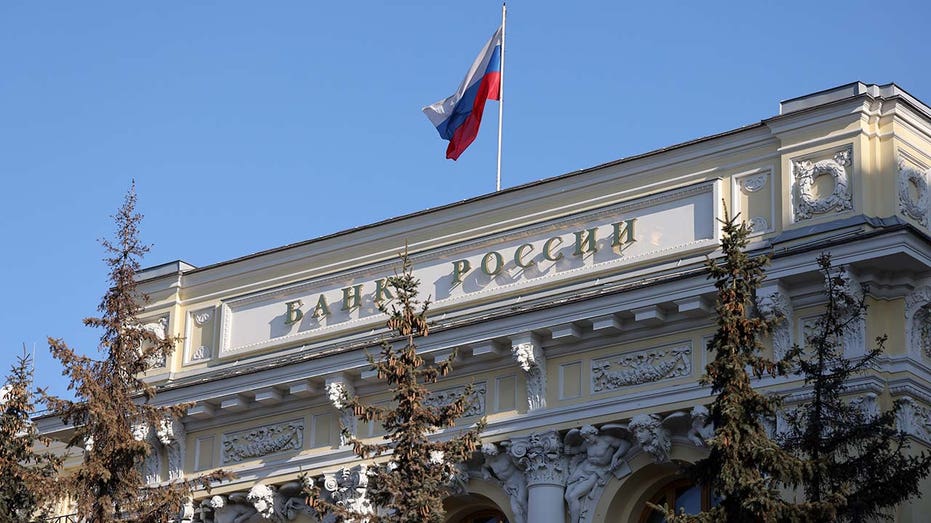Russian oligarchs invest in US commercial real estate, bypassing sanctions as feds warn banks
Texas bans real estate purchases by China, Russia, North Korea and Iran
The Washington Examiner’s Byron York weighs in on the Biden classified documents controversy and Texas banning real estate purchases by citizens from specific countries on “The Evening Edit.”
Wealthy Russian oligarchs are likely investing in U.S. commercial real estate and trying to sidestep sanctions imposed after the invasion of Ukraine last year, according to a warning sent to banks by the Treasury Department's financial crimes and intelligence unit.
The Financial Crimes Enforcement Network (FinCEN) told banks to be on the lookout for suspicious commercial real estate (CRE) transactions that may be carried out by sanctioned Russian elites, oligarchs, their family members and entities they use to move their wealth.
FinCEN's alert noted that the agency "assesses that sanctioned Russian elites and their proxies are likely attempting to exploit several vulnerabilities in the CRE market in order to evade sanctions."
"Thanks to international pressure and the economic restrictions that more than 30 countries have imposed on Russia for its brutal war against Ukraine, sanctioned Russian elites are increasingly left with fewer options for moving and hiding their ill-gotten wealth," FinCEN Acting Director Himamauli Das said in a statement.
TWO CHARGED WITH EVADING US SANCTIONS TO HELP RUSSIAN OLIGARCH PROTECT $90 MILLION YACHT
A Russian national flag flies above the headquarters of Bank Rossii, Russia’s central bank, in Moscow, Feb. 28, 2022. (Andrey Rudakov / Bloomberg via Getty Images / Getty Images) Commercial real estate presents an attractive opportunity to potentially avoid sanctions because they "routinely involve highly complex financing methods and opaque ownership structures that can make it relatively easy for bad actors to hide illicit funds in CRE investments" the alert said. Private companies and investors involved in the CRE market regularly use trusts, shell companies, pooled investment vehicles and other legal entities on both sides of transactions. Those legal structures allow investors to limit their legal, tax and financial liability. US TREASURY ANNOUNCES ADDITIONAL SANCTIONS ON RUSSIA'S WAGNER GROUP An Italian Finance Police car is parked in front of a yacht owned by Russian oligarch Alexei Mordashov at Imperia, Italy, March 5, 2022. (AP Photo / Antonio Calanni / AP Newsroom) CRE transactions also typically involve multiple layers of those legal entities and may have numerous investors behind them, which can make it challenging for financial institutions to identify all the beneficial owners of a particular venture. That lack of transparency and stability of returns has made the transactions particularly attractive to foreign investors and entities. Foreign investors tend to make up a significant portion U.S. CRE transactions – the FinCEN alert notes that 8.4% of transactions in a 2021 survey involved at least one foreign client living abroad, and the figure was above 10% for several years before the pandemic. PUTIN ACCUSES WEST OF ‘ROBBERY’ THROUGH SANCTIONS IN NATIONAL SPEECH ON FLAGGING ECONOMY Squatters display banners and a Ukrainian flag as they occupy a building that was believed to be owned by a Russian oligarch. (AP Photo / Alberto Pezzali / AP Newsroom) FinCEN identified four methods by which sanctioned Russian oligarchs and elites may attempt to use the CRE market to evade sanctions: GET FOX BUSINESS ON THE GO BY CLICKING HERE FinCEN is an agency within the Treasury's Office of Terrorism and Financial Intelligence that gathers financial intelligence and seeks to combat money laundering, financing of terror groups, and other financial crimes. When banks file suspicious activity reports about transactions suspected to be illegal in nature to the Treasury Department, FinCEN is the subagency that analyzes them and makes them available to law enforcement officials for their investigations. Source: Read Full Article



